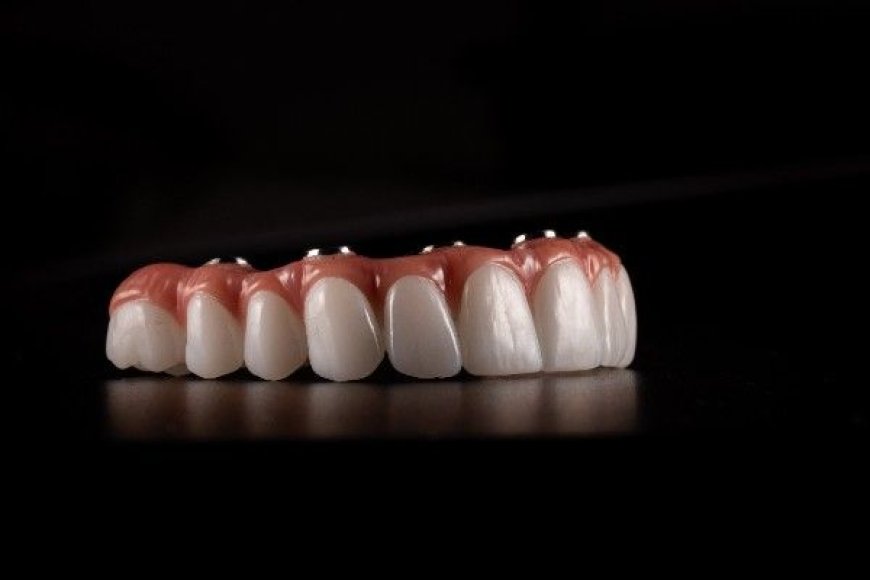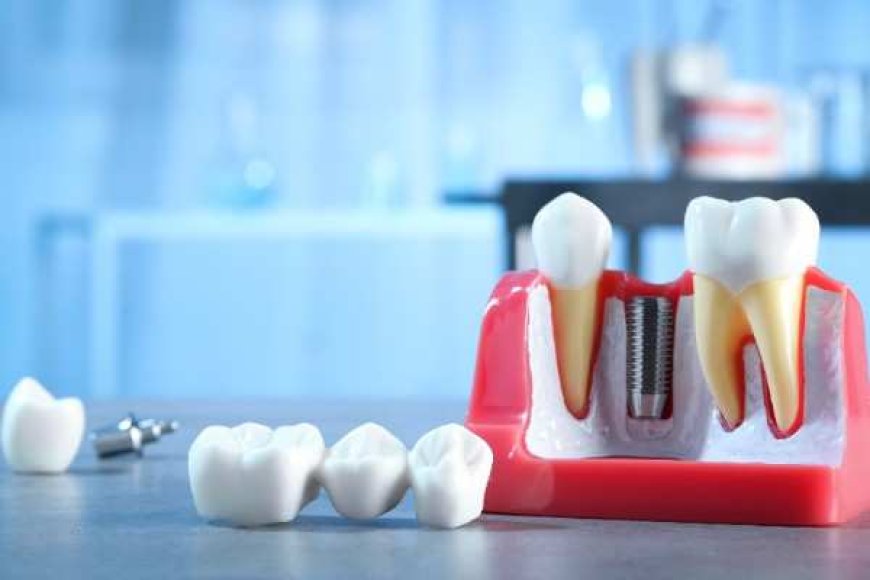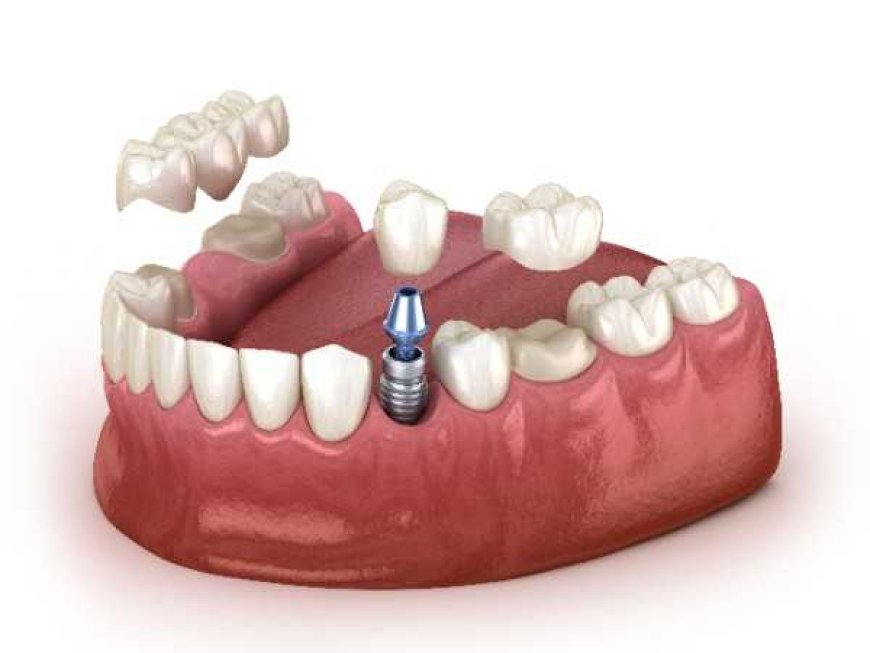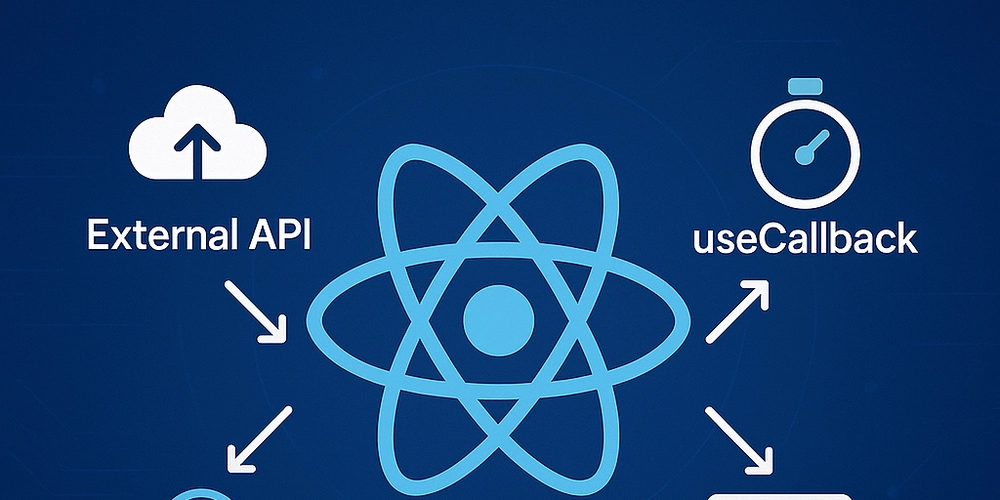Dealing with a Painful Dental Abscess and Swelling
Address dental abscess symptoms like swelling and pain promptly. Get expert help from an emergency dentist and learn about implant options if needed.

A dental abscess is more than just a sore tooth; it’s a serious infection that can lead to intense pain, facial swelling, and potential complications if left untreated. If you've experienced the sharp, throbbing pain of an abscessed tooth, you know it's not something that can be ignored. Timely diagnosis and treatment are crucial, and knowing when to contact an emergency dentist in Bicester could save your tooth and your health. In this blog, we’ll cover what causes dental abscesses, the symptoms to watch out for, how they’re treated, and how you can prevent them from happening in the future. We'll also explore when tooth loss due to an abscess might require replacement options like a dental implant Bicester patients can rely on.
What Is a Dental Abscess?
A dental abscess is a pocket of pus caused by a bacterial infection inside a tooth or in the surrounding gum tissue. It typically results from untreated tooth decay, broken teeth, gum disease, or failed dental work.

There are three main types of dental abscesses:
- Periapical Abscess: This forms at the tip of a tooth’s root, usually due to decay or trauma that allows bacteria to enter the pulp.
- Periodontal Abscess: Located in the gums, this type often results from severe gum disease.
- Gingival Abscess: A less common form, usually involving infection in the gum tissue without affecting the tooth or bone.
All abscesses are serious and require immediate dental attention.
Common Causes of Dental Abscesses
- Untreated Cavities: Decay that reaches the pulp inside the tooth allows bacteria to multiply and cause infection.
- Injury to the Tooth: Cracks or fractures can expose the inner tissues to harmful bacteria.
- Gum Disease (Periodontitis): Infections in the gums can spread deep into the surrounding tissues, forming an abscess.
- Poor Oral Hygiene: Neglecting daily brushing, flossing, and regular dental visits can increase your risk
Recognising the Symptoms
- Persistent, severe toothache (throbbing or shooting pain)
- Swelling in the face or cheek
- Red, inflamed gums
- Pain when biting or chewing
- Sensitivity to hot or cold temperatures
- A foul taste or bad breath
- Fever
- A visible pimple or bump on the gums (may release pus)
Why Prompt Treatment Matters
Dental abscesses will not go away on their own. Without intervention, the infection can:
- Spread to the jawbone or other teeth
- Causes facial cellulitis (a skin infection)
- Lead to sepsis, a life-threatening condition
- Result in tooth loss
- Create difficulty in eating or speaking
Immediate care from an emergency dentist in Bicester is critical if you're experiencing severe pain or swelling.
What to Do If You Suspect an Abscess
If you suspect you have a dental abscess, do not delay. Here's what to do:
- Call an Emergency Dentist: Schedule an emergency dental appointment immediately. The sooner you receive treatment, the better the outcome.
- Manage Pain Temporarily: Over-the-counter pain relievers like ibuprofen can reduce discomfort and inflammation. Avoid applying aspirin directly to the gums.
- Rinse With Salt Water: A warm salt water rinse can help reduce bacteria and draw pus to the surface, offering temporary relief.
- Avoid Hot or Cold Foods: Your teeth may be highly sensitive during an abscess, so avoid triggering further pain.
How Dentists Treat Dental Abscesses
Treatment varies depending on the severity and type of abscess. Common methods include:
1. Draining the Abscess
The dentist makes a small incision in the gum or tooth to drain the pus, relieving pressure and pain. This is usually followed by antibiotic therapy.
2. Root Canal Therapy
If the infection has reached the tooth's pulp, a root canal may be necessary to remove the infected tissue, disinfect the root, and seal the tooth.
3. Tooth Extraction
In severe cases where the tooth is too damaged, extraction may be the only viable option. Once the infection is resolved, dental implants that Bicester patients trust can restore appearance and function.
4. Antibiotics
Your dentist may prescribe antibiotics to control the infection, especially if it has spread or if there’s a fever or facial swelling.
When Is a Dental Implant Necessary?
If the infected tooth must be extracted and cannot be saved, your dentist will likely discuss tooth replacement options. A dental implant Bicester,
- Looks and feels like a natural tooth
- Prevents bone loss in the jaw
- Maintains the alignment of surrounding teeth
- Restores full function for chewing and speaking
Implants can be placed after the infection has cleared and the gums have healed. Your dentist will evaluate your jawbone health and general condition before proceeding.
Preventing Future Dental Abscesses
The best way to deal with a dental abscess is to prevent one from forming. Here’s how:
1. Maintain Excellent Oral Hygiene
- Brush twice daily using fluoride toothpaste
- Floss at least once a day
- Use an antibacterial mouthwash
2. Regular Dental Check-Ups
Routine exams and cleanings allow your dentist to identify problems early and prevent them from escalating.
3. Address Cavities Immediately
Don’t delay treatment for cavities, chipped teeth, or gum disease. Early intervention prevents bacterial infections from developing.
4. Eat a Tooth-Friendly Diet
Limit sugar intake and focus on foods rich in calcium and vitamins to support dental health.
5. Use a Mouthguard If Needed
If you grind your teeth or play contact sports, a mouthguard can prevent tooth injury that might lead to infection.

When to Call an Emergency Dentist
Contact an emergency dentist in Bicester if you experience:
- Severe, unrelenting tooth pain
- Swelling in your gums or face
- Difficulty swallowing or breathing
- Fever alongside dental pain
- Pus discharge or a foul taste in your mouth
Delaying treatment can lead to serious health risks, so always take dental abscess symptoms seriously.
Conclusion
A dental abscess is a painful, potentially dangerous condition that requires immediate attention. Whether caused by decay, gum disease, or trauma, abscesses can lead to serious complications if ignored. Swift action, guided by a trusted emergency dentist in Bicester, is essential for managing the infection, relieving pain, and protecting your oral and overall health. With advanced solutions like a dental implant, Bicester residents can depend on, you can restore both function and appearance with confidence. At EDB, we are committed to providing compassionate, expert care when you need it most.






















































































